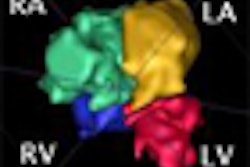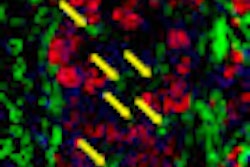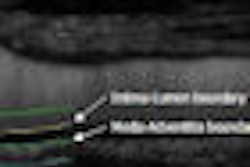Wednesday, December 2 | 3:30 p.m.-3:40 p.m. | SSM10-04 | Room E353C
Yet another promising application for contrast-enhanced ultrasound is in the pancreas, and in this Wednesday session, Italian researchers will present results from the Pancreatic Multicenter Ultrasound Study (PAMUS) investigation.A number of studies recently have investigated the use of contrast-enhanced ultrasound in the pancreas, so University of Verona researchers decided to perform a multicenter study to enable the generalization of results, according to presenter Dr. Mirko D'Onofrio.
The study population included 1,440 pancreatic lesions with pathological confirmation, collected from 2002 to 2007 at six institutions. Researchers found that for solid lesions, contrast-enhanced ultrasound had a sensitivity of 88.9% and a specificity of 93.8%, while for cystic lesions it turned in a sensitivity of 78.9% and a specificity of 99.4%.
Adenocarcinomas were correctly characterized with an accuracy of 87.8%, while cystic lesions were correctly diagnosed with an accuracy of 97.1%.



















